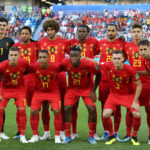European football chiefs have opened an investigation into Juventus, hours after it was revealed that the Turin prosecutor’s office had requested indictments for former president Andrea Agnelli and 10 other former board members as well as the club itself amid allegations of false accounting.
Former vice-president Pavel Nedved and chief executive Maurizio Arrivabene — who both left the club on Monday when Agnelli and the entire board of directors resigned — are among those for whom indictments have been requested, along with former director of sport Fabio Paratici, who has moved to Tottenham.
“The CFCB (Club Financial Control Body) First Chamber has today opened a formal investigation into Juventus for potential breaches of the club licensing and financial fair play regulations,”
Uefa said in a statement.
The investigation “will focus on the alleged financial violations that were recently made public as a result of the proceedings led by the Italian Companies and Exchange Commission (CONSOB) and the public prosecutor in Turin.”
The Uefa-appointed investigation unit is chaired by Sunil Gulati, the former US football federation president who is an economics lecturer at Columbia University.
The unit concluded a settlement agreement with Juventus in August — to avoid more serious sanctions for breaches of financial monitoring rules that apply to all clubs who qualify for Uefa competitions — but the body said on Thursday that that could be revoked.
“In the event that, after conclusion of this investigation, the club’s financial situation was significantly different from that assessed by the CFCB First Chamber at the time the settlement agreement was concluded, or if new and substantial facts arise or become known, the CFCB First Chamber reserves the right to terminate the settlement agreement, take any legal step it may deem appropriate, and impose disciplinary measures,”
Uefa said.
It added that it will co-operate with Italian authorities, who are expected to announce within the next week a date for a preliminary hearing, when it will be decided whether to indict and proceed to trial.
Juventus maintain that “the accounting treatment adopted in the contested financial statements falls within those allowed by applicable accounting principles” and that it has drawn that conclusion “on the basis of a solid set of opinions by leading legal and accounting professionals”.






